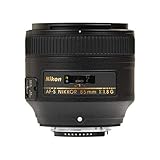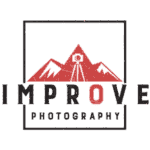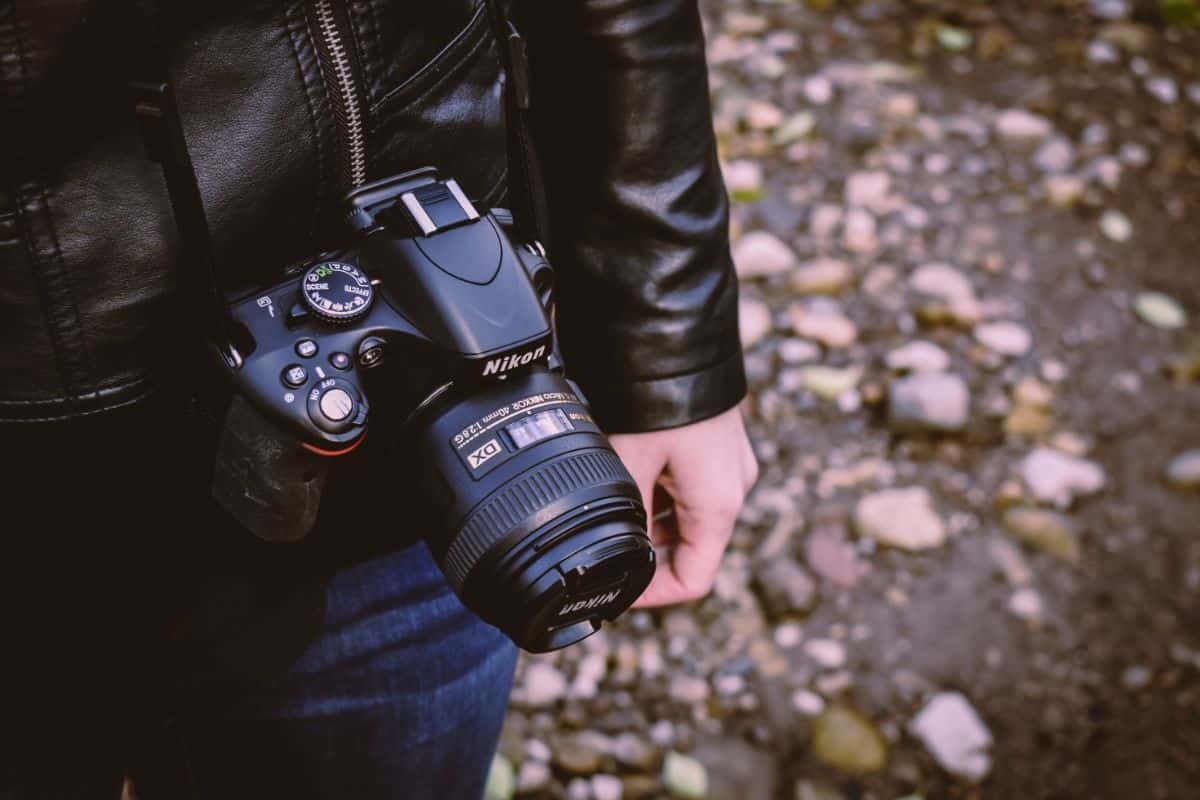If you're looking for a top camera that produces the most professional images and videos in a multitude of conditions, then the Nikon D810 should be one of your choices.
If you’ve landed here, you have already likely experienced the magic of the D810 and are looking for ways to make your photography even better.
One of the best ways to enhance your photos is to choose the correct lens; however, with so many choices to choose from, it can be a daunting task to pick the correct lens for your needs.
We’ve put together a list of our 10 favorite lenses for a Nikon D810, with a wide range of features and benefits. We’ve also put together a guide to help you pick the right one for you.
Best Lenses For Nikon D810 – Comparison Table
Best Lenses For Nikon D810 – Reviews

This lens Is the perfect option for those looking for an all-rounder, as it is expert at taking landscape and portrait photos with excellent quality and sharpness.
It has a sturdy build and it's built to last so you won't have to worry about leaving to send it back anytime soon, as long as you look after it.
We love how the photos still look good even in low light, and there's no compromise on photo Sharpness.
The one major downside is that it is one of the heavier lenses you can purchase, which outweighs many of the other zooms on our list.
- Great sharpness and overall photo quality.
- Ideal for low-light situations.
- Used by professional photographers and enthusiasts.
- One of the heavier options on our list.

Here's another great all-in-one lens that is ideal for everyday photography, or for the perfect shot whilst you're on vacation.
This comes with a powerful zoom, which has over 10 times the zooming scale and also has a built-in VR that provides you with the clearest of shots even towards the longer end of the zoom.
This longer reach and good photo quality make it a super option from rank beginner to enthusiast and anyone in between.
One downside is that the zoom ring is not that smooth which may lose points with certain photographers.
- Ideal for a wide variety of shots.
- Built-in VR allows for clearer shots.
- Comes with a powerful zoom, which doesn’t compromise on image quality, even at the longest setting.
- Doesn’t have the smoothest zoom ring.

We know that many of you are portrait-specific photographers, so you might be better off going with this lens from Nikon.
The lens is ideal for low light situations, takes sharp photos, and has smooth autofocus that doesn't get in the way of your shots.
It’s also one of the cheapest options on our list, making it an ideal choice for hobbyists.
The highlight has to be the low light performance, which it excels at.
If we had to make one drawback, it would be that It tends to have barrel distortion where the image can sometimes feel curved away from the axis.
- The best option for portrait photos.
- Smooth autofocus doesn’t get in the way of shots.
- Ideal for low light settings.
- Tends to have barrel distortion.

Are you looking for a budget solution that still retains a lot of quality?
The AF S 85mm is a sturdy piece of equipment that produces impressive photos that is a good option for ranked beginners looking for a lens for general photography use.
It's one of the best value lenses on the market and would be a great option to enhance your photo skills.
We loved that the focus is fast and doesn't make a lot of noise, and there is plenty of Focus in the sharpness from 1.8.
However, it is let down by slow focusing speed, which takes a while to get right
- Super budget option that is ideal for beginners.
- It comes with a fast, silent focus.
- Sharp photos and is built to last.
- Suffers from slow focusing speed.

There are different forms of photography, how many people choose to go for wide angle shots, with bokeh being less of a consideration with photos that have people in them.
Yet, this is a good chance for you to save photos with a fantastic lens that has up to f/4 wide-angle zoom. It's great value for an FX lens and can cover more focal lengths.
There is a downside to this option; one thing is that it doesn't do well in low-light situations, so be wary of the time of the day and where you are when you’re on a shoot.
- Awesome value for an FX lens.
- Comes with an f/4 wide angle.
- Has image stabilization and vibration reduction.
- Not the best lens in low light settings.

We know that many of you are into macro photography, and this lens is surely one of the top options for the Nikon when it comes to excellent image quality.
But you can also use this to take photos in other situations such as shooting portrait photos, weddings, or events. You’ll get great colors with a relatively long focal length.
The drawback for the 105mm option is that the VR does perform poorly at micro distances, so we recommend you specialize this for macro shots.
-
- Well built and has a sturdy base.
- Come with a decent focal length.
- Ideal for macro photography, but also for events such as weddings.
-
-
- Performs poorly at micro distances.
-

So far we’ve exclusively looked at Nikon-designed lenses, but there are a few third-party options that we would recommend you take a look at.
One of our favorites is this lens from Sigma with a fast and sharp photo lens that is great on a budget, and ideal for those that prefer the lens to be super fast that get the job done.
It’s a good build and doesn’t feel like it's a knock-off of the Nikon brand options. However, the autofocus can be fiddly and you may need to fine-tune it to suit your preference.
- Has a super-fast prime lens.
- Great budget option in comparison to the Nikon lens range of this caliber.
- Photos are fast and sharp with good overall quality.
- The autofocus is not the best, and may require some fine-tuning.

Is a great option for those that are looking for a compact and lightweight lens, with an ultra-wide angle for some of the best photos in landscape and urban environments.
Cramming stuff in a single photo can be difficult for some low-end lenses to handle; but this option is suitable for large gatherings and parties with plenty of people, even in low-light conditions.
This camera is overall very strong and has high-quality images with blurred backgrounds. However, the weather seal isn't ideal and there are better options out there.
- Ideal for cramming lots of people or items into a photo.
- Sharp image resolution.
- Come with low distortion levels.
- The weather seal is not ideal.

Now we are getting too much zoom technology, as we crank up the intensity and give you one of the better high-quality lenses you can purchase.
It’s a super performing telephoto zoom lens that can capture anything such as sporting events or performances on the stage.
Overall distortion is low and the autofocus is fast and accurate as you would expect.
With power comes a lot of weight, and you are probably going to need to purchase a tripod to keep it steady as it weighs over 50 ounces.
- A top option for telephoto zoom for FX.
- Catches super crisp photos and is best suited for sporting events or performances.
- It has great autofocus and it’s very accurate.
- It’s going to be heavy for long shoots, so you will likely need to purchase a tripod.

Here's another great third-party lens from Sigma, ultra-long zoom range will cater to those that like to take photos of Wildlife and go bird watching.
It thrives in natural light and offers plenty of zoom on a budget. It’s a fun option that would better suit beginners or hobbyists that aren’t looking for the best quality photos.
The obvious downside we spotted was that the maximum aperture is the slowest on the list, at f/ 5-6.3, and will not be suitable for low light.
- It comes with an abundance of zoom.
- Ideal for beginners and hobbyists who want zoom but necessarily image quality.
- Perfect for taking photos of wildlife or shots in nature.
- Has a slow aperture at f/ 5-6.3
Buyer's Guide
We've done the hard work for you, and narrowed down the copious amount of lenses to our 10 favorite options.
But even then, you still have pros and cons for each of the lenses and whether they are suitable for certain situations or events.
Here are some factors to consider when purchasing your lens. These are vital to keeping into consideration, as lenses are the cheapest item to purchase, and you can't try out a few.
So making sure you know your lenses before you buy is a vital step in the buying process.
Skill Level
The first step is, to be honest with yourself and to define where you are in terms of your photography skill level. We can typically break down skill levels into beginner, intermediate, and advanced levels.
Beginners can be considered new to the game of photography, or simply do it as a hobby or because they are passionate about it.
They don't have the desire to do it professionally, and simply want to take awesome photos, perhaps out in nature on the weekends.
Intermediates will have some skill level, and they have already tried their hands on a few different types of lenses.
They are now looking for specific lenses to help them with their photography; perhaps they take photographs at weddings as a part-time gig, or they do freelance work for a magazine that takes photos of birds.
Advanced photographers are likely doing this for a living, and require the best equipment for their professional jobs.
They likely don't need to worry about costs, as this is their livelihood, and having the best equipment is essential.
Based on these categories, You can then begin to remove options from the list above, as many are likely not going to be suitable for beginners, and vice versa.
Wide Angle, Standard, Or Telephoto?
There are different types of lenses depending on the type of shot you need.
Wide angle lenses are going to be excellent for landscape photos, and with focal lengths that are less than 50mm, will have a wide field of view.
Standard lenses are good for portraits, photojournalism, or simple Street photography as they aim to replicate the perspective of the human eye.
With lenses with a greater focal length than 50 mm, you have what I called telephoto which is the best for general everyday photos, from wildlife and sports photography, which will ultimately depend on the focal length range.
Image Stabilization
If you're planning to work in low-light settings or don't have the sturdiest of hands, you may want to consider whether the lens has image stabilization.
This effect will be perfect for those moments of a shaky camera that can occur during sudden movements such as a photographer’s hand shaking or a sudden gust of wind.
Different lens manufacturers will often have their version of image stabilization, but they all carry out the same task.
Many photographers will keep the setting on and not go back once they realize how beneficial a feature it is.
Focusing System
Most people have an autofocus lens attached to the camera, with many models having a manual focus.
But autofocus will indeed offer the best convenience, as you can flick them on or off for situations where you need the best Focus.
This feature will come down to your experience level, and whether you require strong autofocus.
As many rank beginners or hobbyists aren't too fussed about having autofocus, and will instead use the manual approach.
Weight
The length and weight of your lens will likely be determined by the types of photos that you are going for.
Many Professional photographers require having a larger piece of kit in order for them to get the most prominent photos, however, this is not necessary for recreational photographers they just want to simply get shots out and about.
The obvious downside is that carrying extra weight can be difficult, and not suitable for those going out for a long time, such as long walks in nature, as these options almost certainly require the purchase of a tripod.
Yet, those that are going to be in a stationary situation such as sporting events will likely need this type of lens.
Accessories
Some of the options above will come with some accessories that are worth keeping in your bags at all times, such as hoods that help to cut out unwanted straight lights, or protective filters to help protect the front of your lens from dirt and debris.
Although perhaps not one of the most important elements, it might also be worth considering whether your chosen lens is going to come with a pouch or case, or whether they need to be purchased separately.
This might suit those that take their lenses out for long periods, or two situations where they could get damaged, such as a hike or out in nature.
It will also increase the lifespan of the lens if they are well protected.
Frequently Asked Questions
Can You Remove Scratches From A Camera Lens?
Yes, you can, but bear in mind that this will also remove the lens coating. We recommend using 1.5-micron synthetic diamond paste designed for polishing.
You can dab a small drop on the wheel that is enough to discolor the surface, and then using a medium to slow speed, polish in a random pattern across the scratch.
What Does USM Mean On A Camera Lens?
This stands for ultrasonic motor, and you may notice it written on the side of your lens, which means that it has a small motor built into the body.
Essentially it allows your lens to autofocus faster than standard models.
Which Camera Lens Best Mimics Human Perspective?
We recommend that you go with a 35 mm lens as a standard option for this type of shot. With the focal length of a human eye being around 50 mm, this seems to give the best results.

